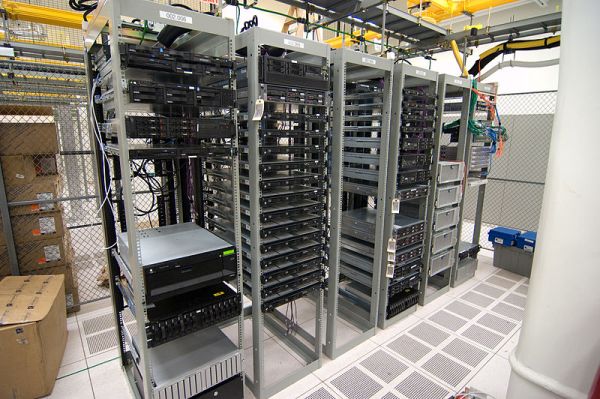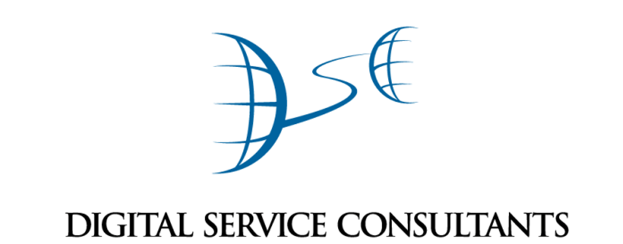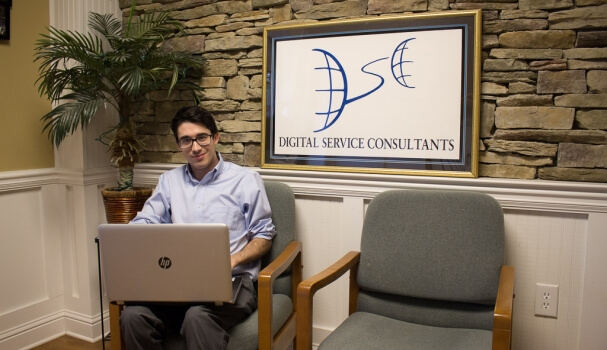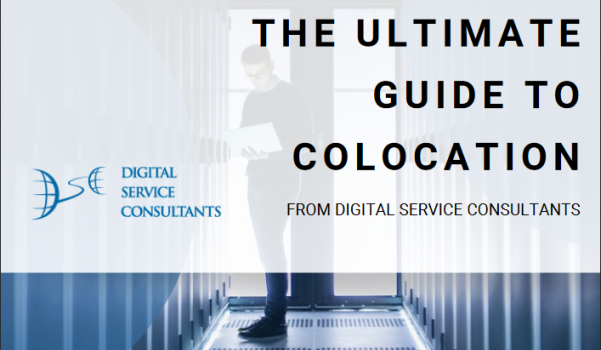Probably the most confusing part of colocation is data center pricing. Data centers have such a wide spectrum of different pricing models that it’s difficult to compare costs between them. Let’s take a look at the 4 basic elements involved in data center pricing: power, space, network, and technical support. Get the best data center pricing and colocation service today from DSC.

Data Center Pricing: Here’s What You Can Expect
If you have tried comparing data centers to find out who has the best colocation services at the best value, you’ve probably come away rather confused. That is because data centers don’t have a standard way to break down your cost, and as a result, it makes it very hard to compare packages.
Different companies take different approaches to data center pricing. There are several ways that they may break down their costs such as:
- Charging for power and network use
- Charging for power, space, and network use
- Charging different rates for cooling power (the power to keep your equipment cool) as opposed to cabinet power (the power to run your equipment)
- Charging for cross-connects
Your data center will either charge you a flat rate for your power consumption or they will
meter your power usage
1. Data Center Pricing for Power
When you have colocation service, your data center provides you with two types of power: power to run your servers and equipment, also known as cabinet power, and power to operate the HVAC system that is used to keep your equipment cool.
Power to run your servers and IT equipment:
The amount of power that your equipment will use can be fairly accurately calculated by looking at each piece of equipment. Your equipment specifications will indicate how much power it uses, so you can add them all up to determine the total usage.
A data center will either charge you a flat rate for your consumption, or they will meter your usage. If you use more than 300kW, then you probably would be better paying the metered rate.
Power to run the HVAC to cool your equipment, lighting, etc:
You will also be charged for the power that the HVAC system uses as well as other power charges such as lighting. It is more difficult to determine exactly how much power this will be.
You can, however, find out how efficient your data center is. Ask them to let you know what their Power Use Effectiveness (PUE) is. The PUE is a widely accepted bench-marking standard developed by the Green Grid, an affiliate membership that works to improve IT and data center energy efficiency and eco-design around the world. It helps IT professionals find out how efficiently data centers use their power. The closer the PUE number is to 1.0, the more efficient it is.
Data centers require a large amount of HVAC power to cool their equipment
2. Data Center Pricing for Network Access
Like pricing for power, network pricing also involves two separate charges: one for internet access (IP) and the other for cross-connect charges.
Internet Access: Your internet access is usually charged per megabytes used. In most cases, you will be charged a fixed consumption rate such as 250Mb, 500Mb, 1,000Mb or even 10 Gb depending on your requirements.
Cross-Connects: Cross-connects are any connections “between facilities provided as separate units by the data center.” For example, the uplink that runs from your equipment in the data center to the network provider is considered a cross-connect. Cables that run between your racks in the data center, however, are not cross-connects.
The amount you pay will depend on how many cross-connects you have and the type and speed of the lines.

Data centers will charge for the amount of space you take up
– Source: Alexis Lê-Quôc from New York, United States [CC BY-SA 2.0
3. Data Center Pricing for the Space You Use
Data centers charge for the amount of space that you need to house your IT equipment. The data center pricing that you are quoted will take into consideration the square footage that your servers will take up.
Both the width and depth of your servers need to be accommodated. If you have equipment that isn’t a standard size, then it may need to have a customized rack. This will add to the cost and the time to set it up. The unit of measurement used when talking about rack space is “U,” which is equal to 1.75 inches in height. For example, a piece of equipment that is 3.5 inches high would take up 2U of rack space.
A typical full-sized rack cage found in data centers is 42U high and either 19 or 23 inches wide. The individual pieces of equipment held on these racks are usually anywhere from 1U to 4U high. Most rack-mount servers take up 1-2 Us of space.
To learn more about rack sizes and pricing, you can read our article “Colocation Pricing: The Definitive Guide on What to Expect (2019 Report).”
4. Data Center Pricing for Remote Technical Support
There are some technical tasks that you won’t be able to do from your location and will, therefore, need a pair of “remote hands” – someone physically at the data center who can do these tasks for you. These are usually visual and manual tasks such as flipping switches.
Remote technical support can be offered in a pre-purchased package such as 15 minutes or more, or on an as-needed basis. Some data centers will include these small tasks at no extra charge, whereas others will charge for this service in their data center pricing.

Some data centers will charge for remote technical support and others will offer it as part of their package
Is Colocation Right for Your Business?
Find out if colocation is right for your business. Click here to download your free copy of “The Ultimate Guide to Colocation”

Trust DSC for the Best Data Center Pricing
Digital Services Consultants is a premier data center located just outside of Atlanta, Georgia in Buford. DSC offers you the best data center pricing and highest quality service possible. Along with our top-notch server colocation, we provide a full range of internet- related and cloud services including cloud backup, system monitoring, software hosting, dedicated email, website development and implementation, web hosting, e-commerce, security, and a variety of related products and services.
We also provide network support for Linus, Microsoft server and workstation platforms, Fortinet firewalls, and Cisco Systems. DSC has been a trusted name in the IT industry in Atlanta for more than 30 years. Contact us today for all of your internet-related requirements.
Learn how the “Super Heroes of IT” can help you maintain a reliable connection and computing infrastructure
“Ashia R. Was extremely helpful and patient while working on everything. Always very knowledgeable and precise! This company is literally the best option out there! Top Notch customer service and actual service! Thanks for everything!”
– T. Rivera
Read more customer reviews
 DSC has been a trusted name in the IT industry in Atlanta for more than 33 years
DSC has been a trusted name in the IT industry in Atlanta for more than 33 years
DSC Gives Back to the Georgia Community
DSC is proud to be part of a thriving Georgia community and we care enough about our community to want to give something back. That is why we started the “Next Generation” training days. During the training, our students learned about the history of CPUs and GPUs. The training focused on the performance and success of different models and brands and which ones excelled during their various time periods. You can access an audio recording of the training on the DSC website for free. Click here to listen!


